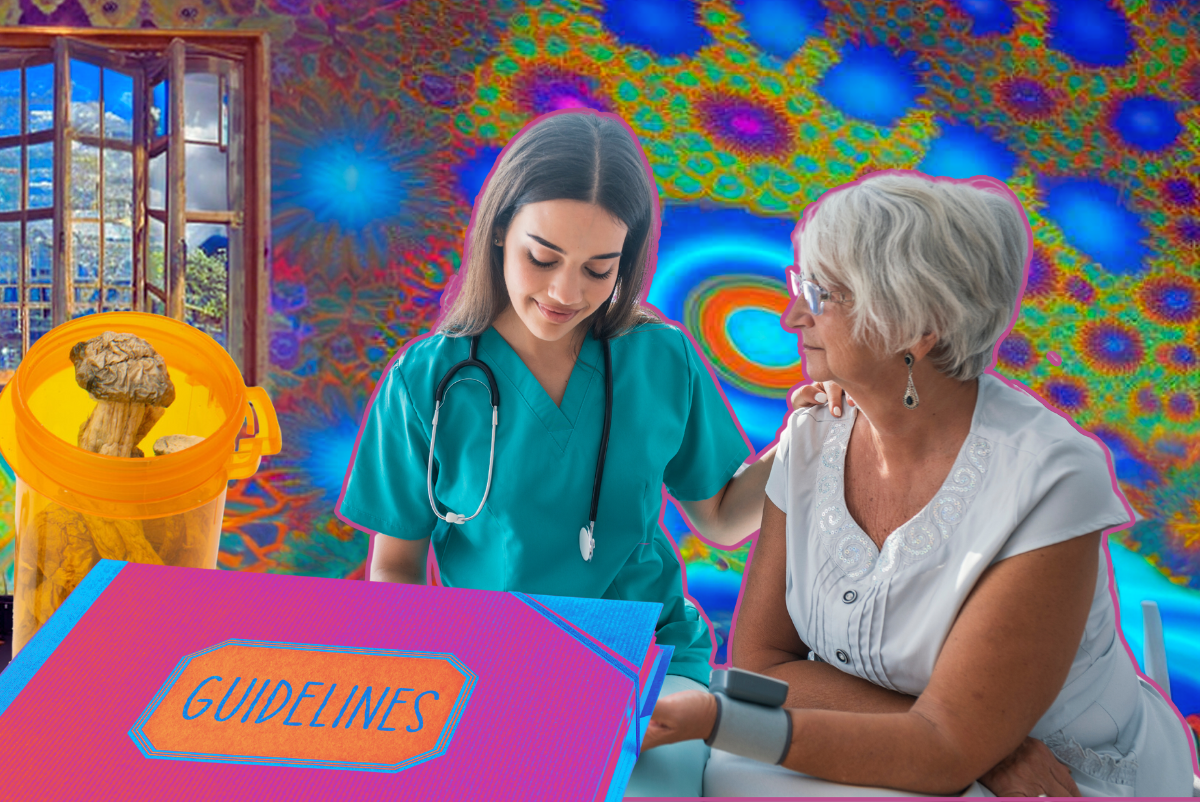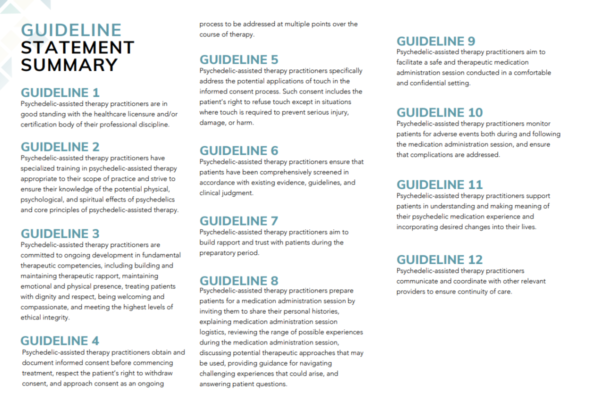
On August 8th, the American Psychedelic Practitioners Association (APPA), which is both the accreditation body for the psychedelic field and the national association for practitioners, and BrainFutures, a nonprofit aiming to advance the practical applications of brain research, announced the first-ever set of professional practice guidelines for psychedelic-assisted therapy.
The purpose of these guidelines, written by a working group of experts from multiple disciplines within the psychedelics field, is to provide education and guidance to psychedelic therapy practitioners as this model is also relevant to providers and patients outside of clinical trials.
The guidelines, included on page 11 of this report, are centered around a number of essential areas in psychedelic-assisted therapy, such as:
- Necessary licensure and/or certification for psychedelic-assisted therapy practitioners.
- Necessary specialized training in psychedelic-assisted therapy crucial to ensure that practitioners possess the knowledge of “the potential physical, psychological, and spiritual effects of psychedelics and core principles of psychedelic-assisted therapy.”
- The necessity of obtaining and documenting informed consent pre-treatment.
- The need for practitioners to address the potential applications of touch in their consent forms, and the patient’s right to refuse touch except in situations where touch is necessary for harm reduction or harm prevention purposes.
- The necessity of patient comprehensive screening before treatment essential to assess full health history and to create “an open, respectful, culturally-sensitive environment in which patients can feel safe expressing various aspects of their life experiences and identity.”
- The necessity for practitioners to build rapport and trust with patients in the preparation stage.
- The need to monitor patients for adverse events both during and following the treatment, and ensure that complications are addressed.
- The necessity to support patients through psychedelic integration post-treatment, an essential component for patients to understand and reflect on their psychedelic experience, and for them to incorporate the desired
changes into their lives, and so on.
See guidelines below.

In the recent press release announcing the new guidelines, Andrew Penn, MS, PMHNP, Clinical Professor, UC San Francisco School of Nursing and a member of the working group said, “The Professional Practice Guidelines are an important next step in the evolution and professionalization of psychedelic therapy. By seeking to clarify and define concepts such as consent, appropriate screening of patients, professionalism and ethics, safety, patient preparation, coordination with other providers, and integration of psychedelic therapy experiences, these guidelines will help to protect patients and advance the safe use of psychedelic medicines in professional settings.”
“With the anticipated approval of MDMA to treat PTSD next year and the rollout of other psychedelic therapies to treat a variety of mental health disorders in the next few years, there is a growing need and desire on the behalf of the practitioners to be properly trained and prepared to deliver such life-changing treatment,” added Brigadier General (Ret.) Stephen N. Xenakis, MD, Executive Director of APPA. “Patient care, safety and experiential efficacy are of the utmost importance, especially when patients can be in such a vulnerable state during their experience, and these guidelines are the first step toward an approach for practitioners to get the support they need to effectively and safely administer this treatment.”
Of course, these guidelines are not set in stone. The co-authors expressed that they will modify and update the recommendations as new findings and data emerge in the psychedelics field. These guidelines are set to expire in two years from their publication and updated ones will take their place.
“Even though FDA approval for the first psychedelic-assisted therapy is still months away, researchers can use these guidelines today to design cutting-edge studies that will lead to new therapies tomorrow. We are proud to be leading the way as the medical field prepares for psychedelic-assisted therapy to become a crucial new tool in clinicians’ toolboxes,” added David Esselman, Executive Director of BrainFutures.





